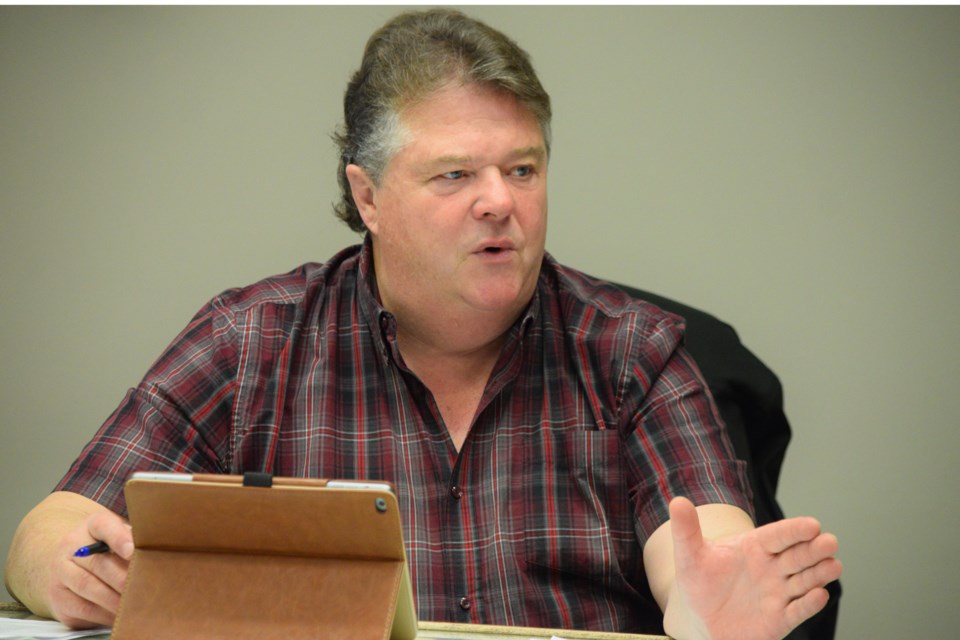BARRHEAD-It has been a challenging year for municipal governments, and the pandemic has not made it easier.
That is what County of Barrhead reeve Douglas Drozd told the Barrhead Leader in an e-mail interview. We reached out to Drozd to ask him about the challenges the municipality is facing and some of the bright spots on the horizon.
Drozd said much of what municipal councillors are concerned with is a direct result of a prolonged economic slump as well as the downloading and the downloading of expenses from the provincial government.
For example, in October 2019, as part of its budget, the government announced that it would be cutting the Municipal Sustainability Initiative (MSI) funding.
The Municipal Sustainability Initiative was introduced by the province in 2007 as a way to help municipalities fund local infrastructure projects. From 2020 to 2022, reductions are expected to be nine per cent annually. However, what Drozd said what concerned County of Barrhead councillors the most is the government's original plan to change the linear assessment property tax model, which would drastically change how much rural municipalities received from energy and other utility companies with infrastructure in their jurisdictions.
"The county has had success with relations at other levels of government. Through our efforts [other rural municipalities] and those of the [Rural Municipalities Association], we were able to turn back the impacts of the Assessment Model Review on Oil and Gas properties," he said.
Depending on the proposed model, municipalities could have seen a reduction of assessment tax revenue reduced anywhere from 14 to 24 per cent. In the case of the County of Barrhead, that would have meant an estimated loss of anywhere from $500,000 to $900,000.
"Changes will occur but not to the devastating level first proposed," Drozd said.
County of Barrhead council was equally concerned about the proposed changes to the policing model. In the fall of 2019, the province announced it would be changing the long-standing tradition of rural municipalities with populations of less than 5,000 would have to start contributing to the cost of policing.
"The initial demand of the county would have negatively impacted our ability to maintain the quality of services we are accustomed to," he said.
Under the new model, starting in April 2020, they will contribute 10 per cent of their policing costs gradually increasing to 30 per cent by 2023.
The UCP announced the policing model funding change as part of its rural policing strategy which will see the province hire 300 additional RCMP officers and 200 support personnel.
"We will pay more and council still has concerns such as what can we expect for the additional monies," Drozd said.
And although municipalities are being asked to contribute more in order to help the province through what are difficult financial times, Drozd said the federal and provincial governments have also helped municipalities fund much-needed infrastructure upgrades through cost-sharing and other economic stimulus programs.
"[Some of these programs] will help us fund some infrastructure projects at no cost to County ratepayers that will be a benefit to all," he said, noting that according to the ratepayers' tax survey, residents placed road maintenance and infrastructure at the top of their priority list (road-maintenance-number-one-issue-for-county-residents).
Drozd added other grant funding programs will allow the municipality to make upgrades to the Neerlandia wastewater lagoons which are near capacity.
He also noted that council has worked hard to ensure the infrastructure needs at the municipality's Kiel Industrial Park are met, adding the park is fully serviced and is being marketed by realtors specialized in commercial properties.
"When the economy rebounds, we are ready," Drozd said.
Drozd said, he would be remiss if he did not recognize the extraordinary efforts of the county manager and municipal staff in continuing to provide the quality services that residents have come to expect while keeping the community safe.
"I also miss not having the annual Agriculture Service Board Tour and not being able to hold our annual Rural Beautification and Business Excellence Awards," Drozd said. "I also miss the time council and staff used to be able to spend together outside of work. The County of Barrhead feels like a big family and I am looking forward to the day that we can gather again."
Barry Kerton, TownandCountryToday.com



